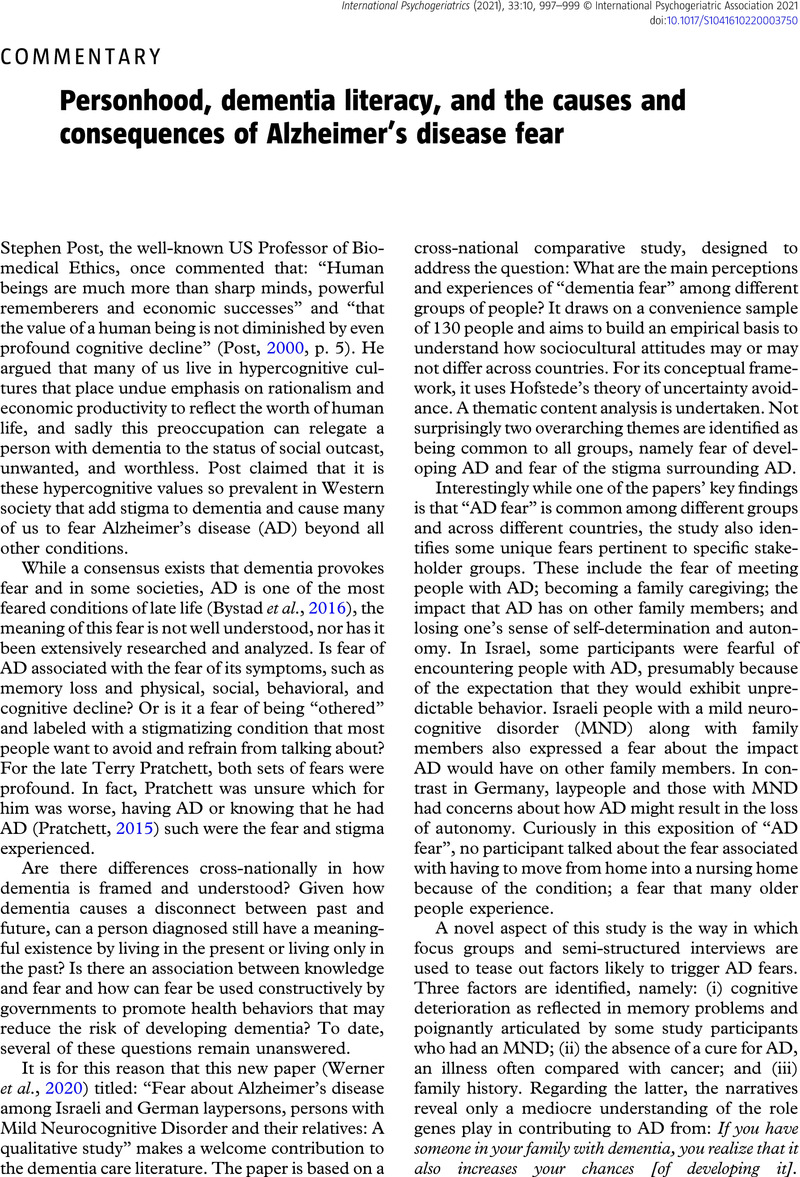Crossref Citations
This article has been cited by the following publications. This list is generated based on data provided by Crossref.
Branco, Rita Maldonado
Quental, Joana
Ribeiro, Oscar
Teles, Soraia
and
Almeida, Ana Margarida
2023.
Dementia Lab 2022: The Residue of Design.
Vol. 3,
Issue. ,
p.
51.
Warren, Alison
2023.
The relationship between perceived stigma and perceived stress in cognitive decline: a survey of persons with mild cognitive impairment and their caregivers.
Frontiers in Psychology,
Vol. 14,
Issue. ,
Sabat, Steven R
and
Warren, Alison
2023.
Exploring why “memory loss” is a misleading descriptor of people living with dementia and can lead to dysfunctional care.
Dementia,
Vol. 22,
Issue. 8,
p.
1819.
McGee, Jocelyn S
McElroy, Michaela
Meraz, Rebecca
and
Myers, Dennis R
2023.
A qualitative analysis of virtues and strengths in persons living with early stage dementia informed by the values in action framework.
Dementia,
Vol. 22,
Issue. 1,
p.
46.



